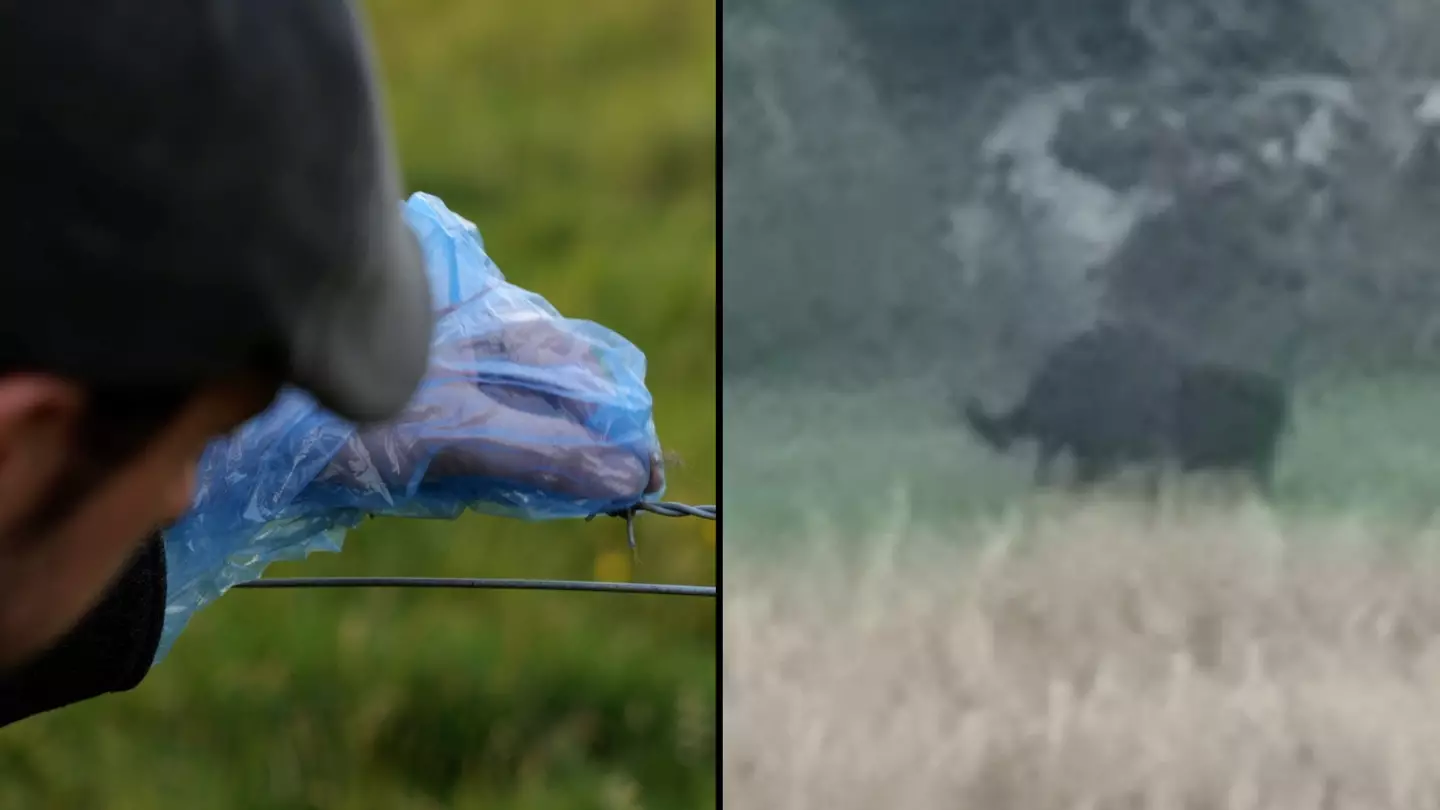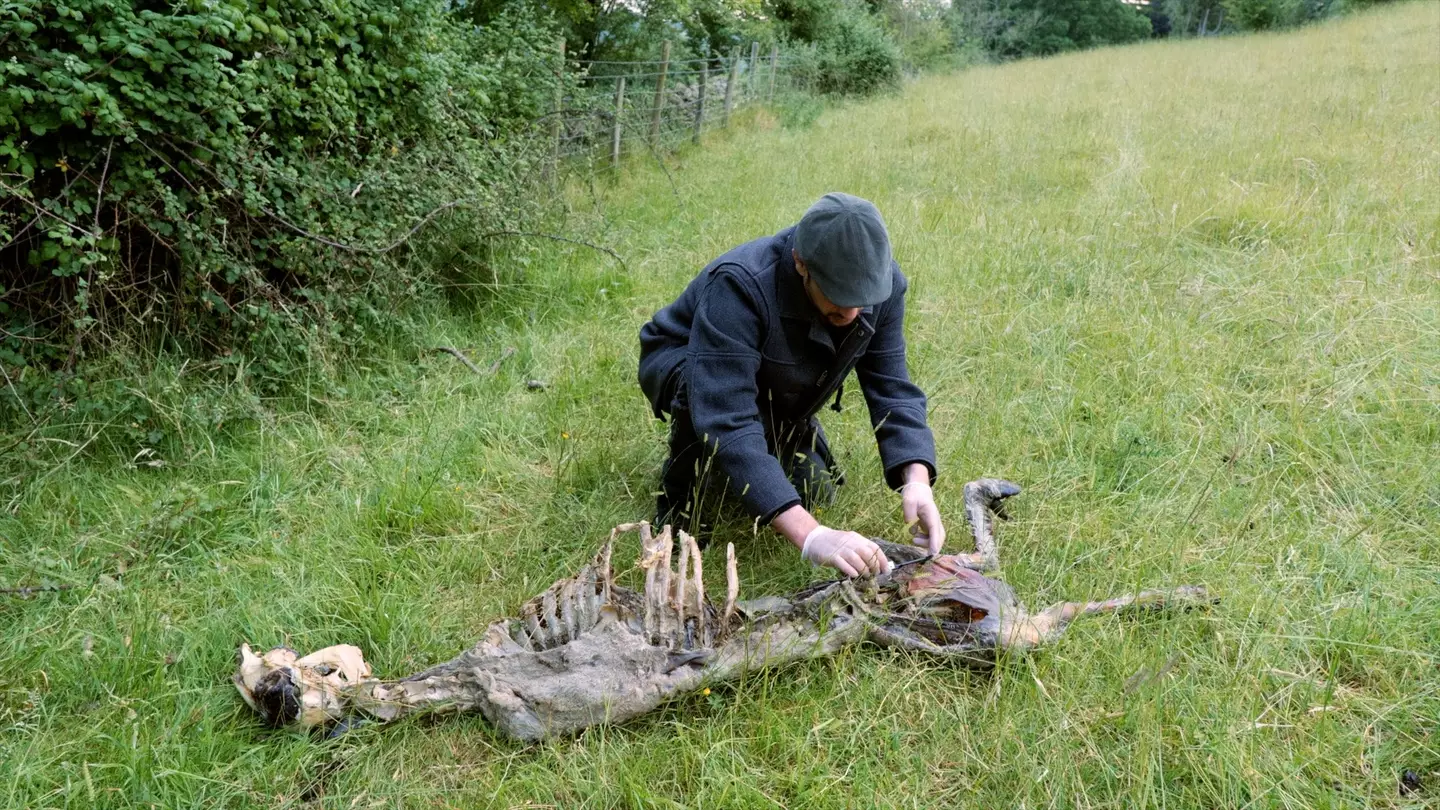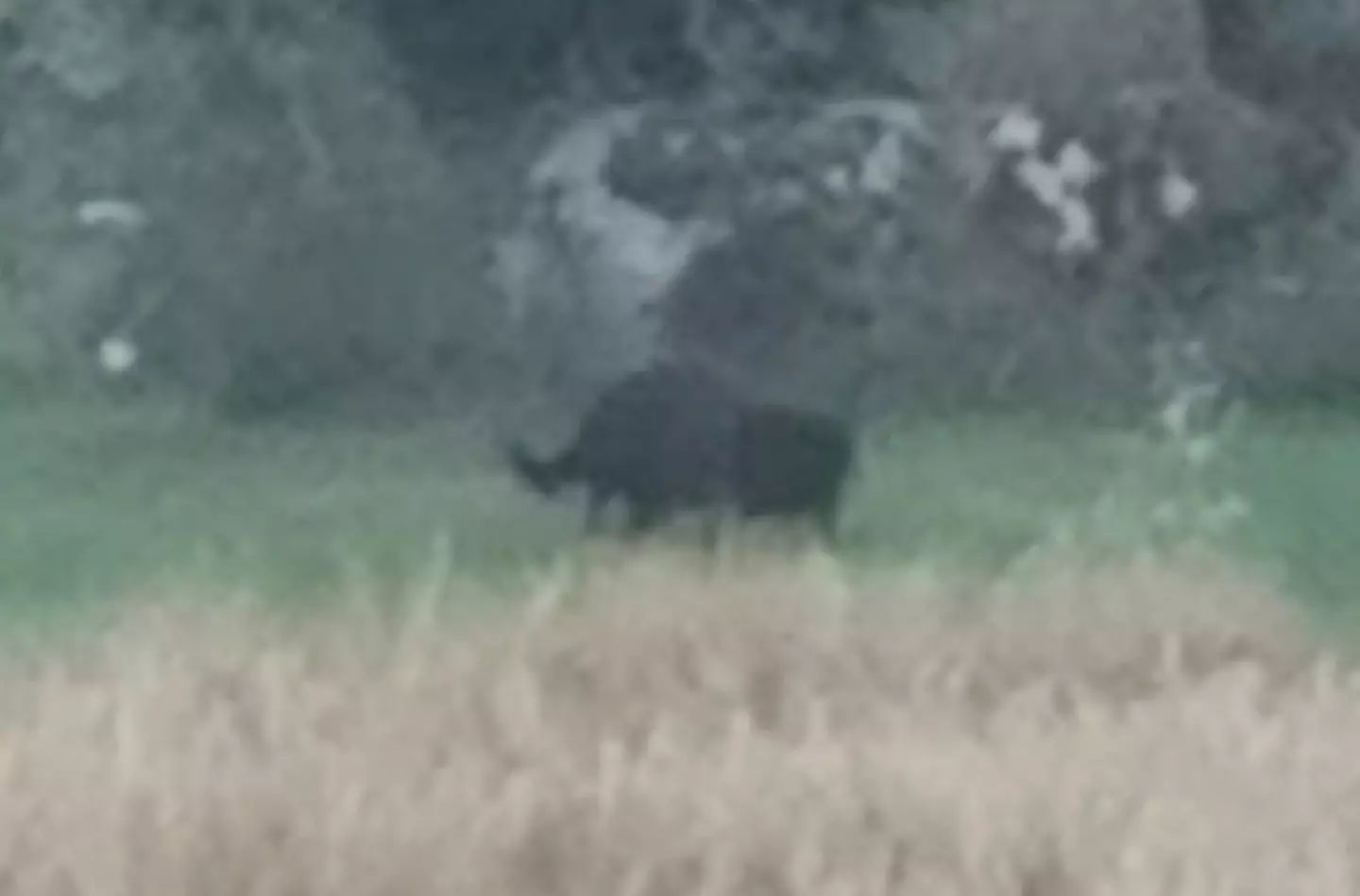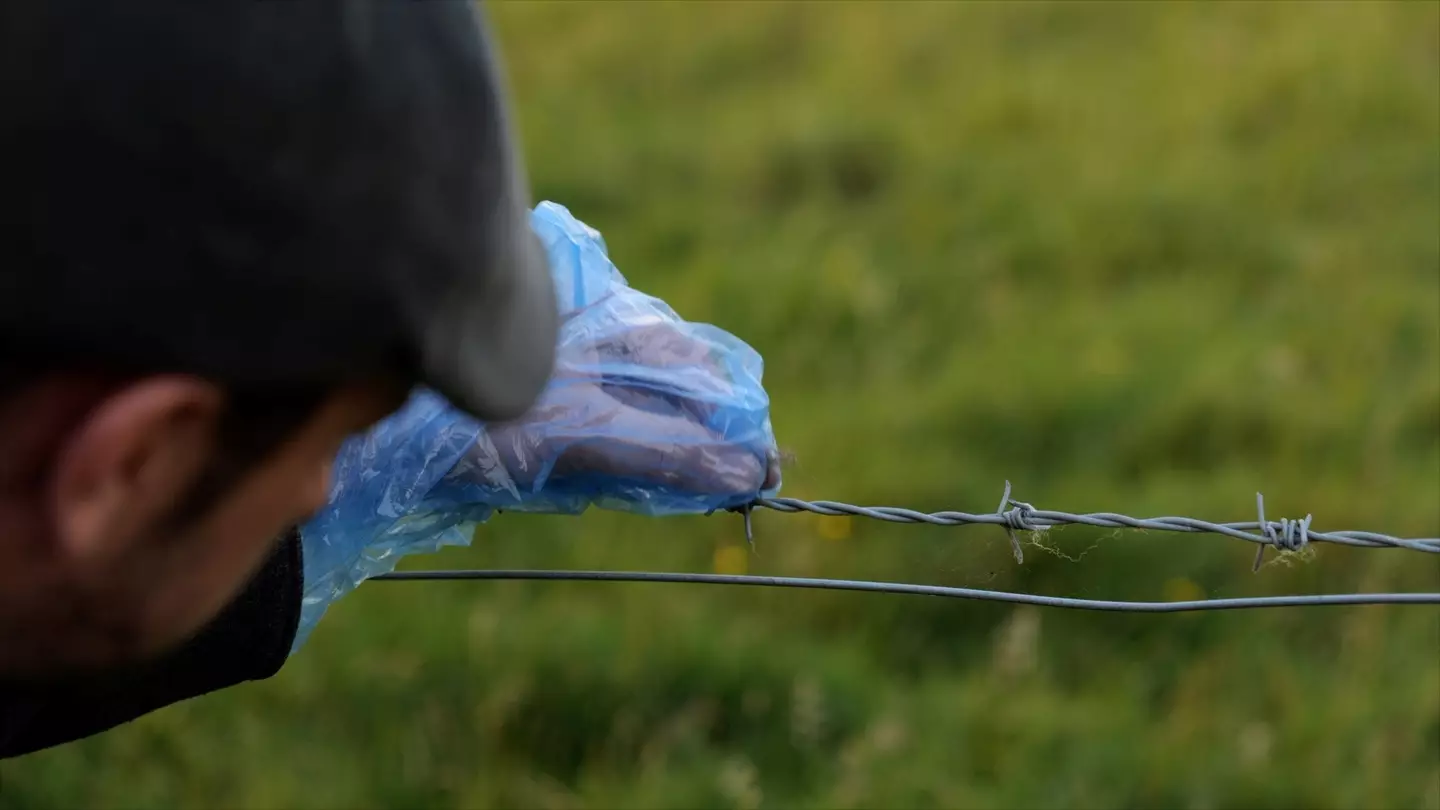
New DNA evidence has provided us with ‘definitive proof’ that black panthers and other big cats are living in Britain.
By 'big cats' we're not really talking about Garfield here - more like scary leopards with black fur.
It seems that the single black-haired strand which was found on a barbed wire fence at a Gloucester farm - the result of a viscous sheep attack - has suggested that there had been some 'unusual predatory' activity taking place.

Advert
Video footage of a large black animal was also captured a few miles from where the strand of hair was found.
Film-makers who are working on upcoming documentary Panthera Britannia Declassified say it's 'taken five years for the production team to find such evidence'.
DNA analysis confirmed that there was a 99 percent match to a big cat species, researchers from a forensic laboratory have said.

Matthew Everett, from Dragonfly Films, said: "The DNA was from hairs caught on a barbwire fence where there had been some unusual predatory activity.
Advert
"It’s taken five years for the production team to find such evidence and film its journey from collection to analysis.
"People in Gloucestershire and Britain have described what appear to be black leopards for decades. So, a leopard DNA result from a black hair sample is unsurprising.
"This is not the first such DNA result and is unlikely to be the last.
"There is a great deal of ‘secondary evidence’ for these cats, such as consistent witness reports, but hard evidence like DNA is hard to get, so the contribution from this documentary is very helpful.
"Collecting such evidence from local people, farmers and landowners is essential - Citizen Science like this will hopefully help us learn more about the Bagheera type big cats which may be quietly naturalising here."
Advert

Countryside locals have reported sightings of what appear to be black leopards for decades.
Last year in Gloucestershire there were several sightings of a large black cat which were reportedly spotted on the side of the motorway and nearby an airport.
Previously a sheep carcass, which was found at the same farm as the DNA result, was assessed for its tooth pits, which are marks on the bones from carnassial teeth of an animal that has fed on the carcass.
Analysis conducted at the Royal Agricultural University suggests that relatively large carnivores fed on the carcasses due to the impacted bones.
Advert
Dragonfly Films is currently looking into broadcast options for the upcoming doc, while an earlier version of the film Panthera Britannia is available on Amazon Prime, Vimeo and Apple TV.